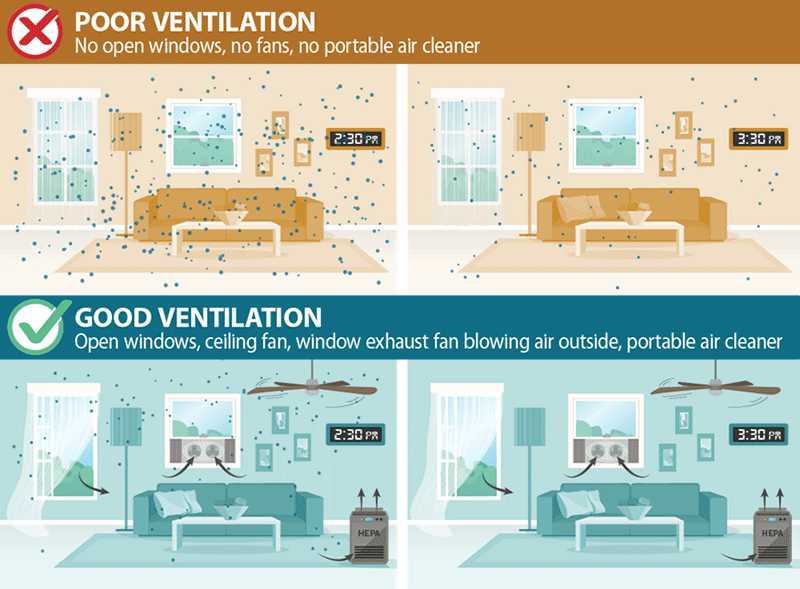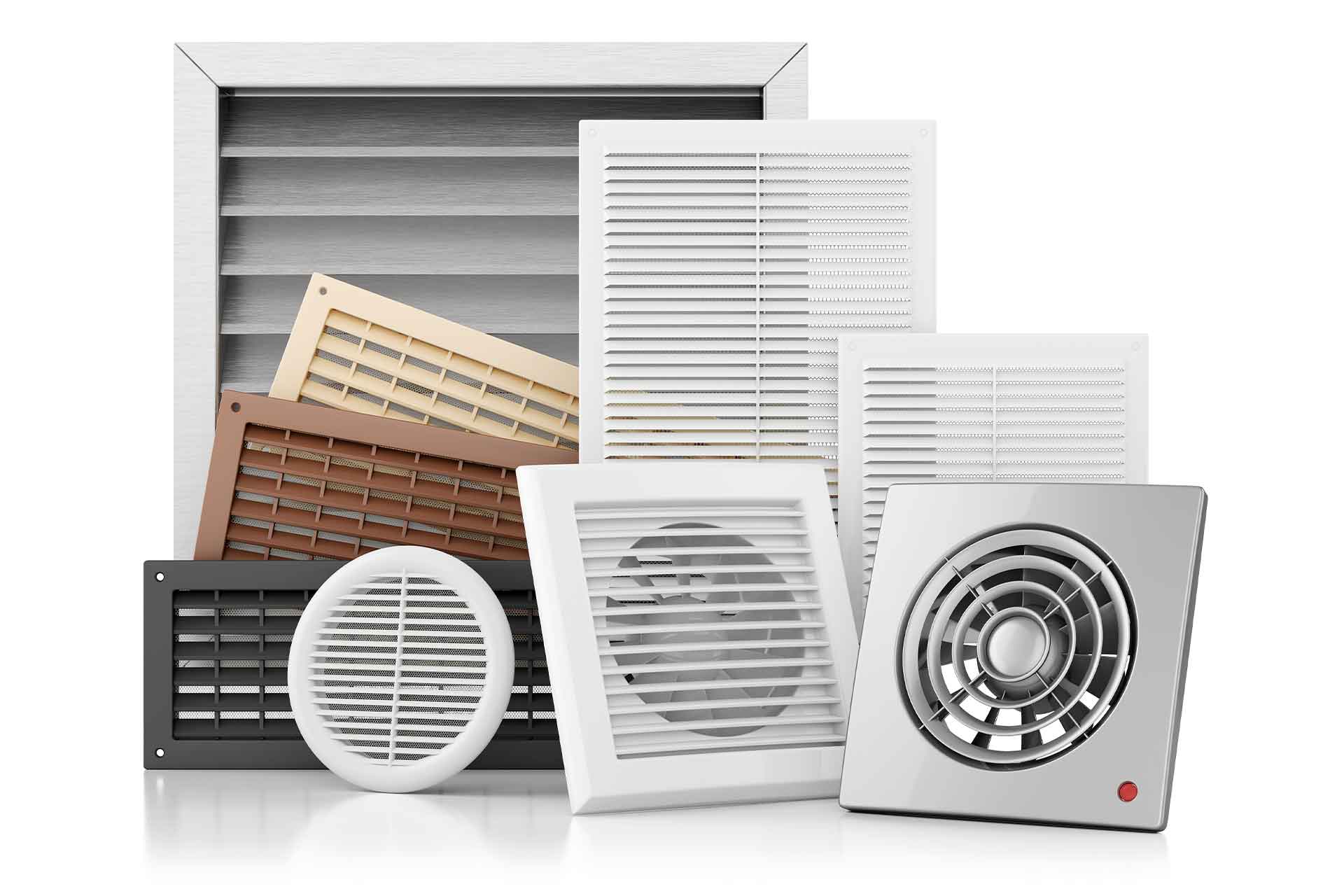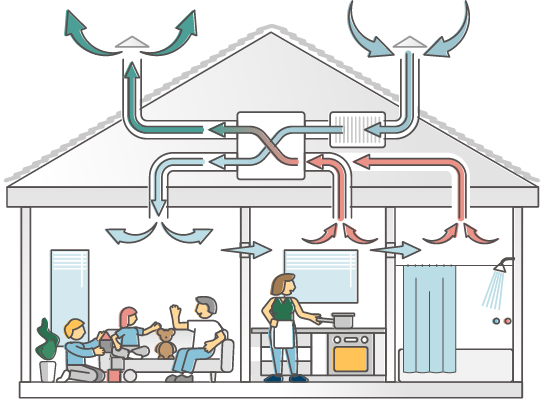Home Ventilation Melbourne: Best Practices for Year-Round Air Quality
Wiki Article
Comprehending the Relevance of Home Ventilation for a Healthier Living Atmosphere
Home ventilation plays a necessary role in preserving a healthy and balanced living atmosphere. It facilitates the exchange of outdoor and indoor air, which is necessary for enhancing air high quality. Without appropriate air flow, homes can end up being reproducing premises for contaminants and irritants. The consequences of insufficient air circulation can be substantial. This raises the inquiry of just how home owners can properly execute ventilation approaches to guard their health and health. Comprehending these approaches is important.
The Fundamentals of Home Air Flow
Home ventilation serves as an important component of interior air quality and comfort. It entails the process of exchanging stagnant interior air with fresh outdoor air, therefore reducing moisture and controlling temperature. Proper ventilation systems can consist of natural methods, such as open home windows and vents, in addition to mechanical systems, such as exhaust followers and air exchangers. Efficient home air flow helps stop issues like indoor mold development and the build-up of dangerous fragments. It also boosts general energy performance, as well-ventilated areas can preserve comfy temperature levels with less dependence on home heating and cooling systems. Recognizing the essentials of home air flow is important for home owners seeking to produce a much healthier living atmosphere on their own and their family members.
Common Sources of Indoor Air Contamination

Several may not realize it, indoor air contamination can originate from different sources within a family. Common factors include volatile organic compounds (VOCs) emitted from paints, solvents, and cleaning products. Family appliances, such as gas ranges and fireplaces, can launch damaging gases like carbon monoxide gas and nitrogen dioxide. Furthermore, mold and mildew and mildew thrive in damp areas, launching spores that impact air high quality. Family pet dander, dirt termites, and plant pollen can gather inside your home, more aggravating contamination levels. Cigarette smoking indoors creates toxic chemicals that stick around airborne. Developing materials, including asbestos and formaldehyde, can off-gas hazardous materials. Identifying these resources is crucial for preserving a much healthier interior setting and promoting effective air flow approaches.
Health Effects of Poor Air Flow
Indoor air contamination can have significant health and wellness effects, particularly when air flow is insufficient. Poor ventilation can bring about the buildup of dangerous contaminants, such as volatile natural compounds, mold and mildew, and particle issue. This build-up might cause respiratory system problems, including asthma, allergies, and chronic obstructive lung illness. Individuals may experience signs like frustrations, fatigue, and irritation of the eyes, nose, and throat. Susceptible populations, such as kids and the elderly, go to higher threat for serious health results. Lasting exposure to badly ventilated atmospheres can also add to more significant conditions, consisting of cardio diseases. Consequently, making certain appropriate air flow is crucial for keeping a healthy living setting and reducing the danger of wellness problems related to interior air contamination.Efficient Ventilation Techniques for Your Home
Proper air flow is necessary for preserving a healthy and balanced indoor setting, and executing efficient techniques can significantly enhance air high quality. Home owners can begin by guaranteeing that exhaust followers are mounted in washrooms and kitchens to get rid of excess wetness and smells. Opening up home windows consistently permits fresh air to distribute, particularly during light weather. In addition, making use of air cleansers with Home Ventilation Melbourne HEPA filters can aid record air-borne pollutants. For homes with home heating and cooling systems, preserving a/c systems and altering filters on a regular basis is vital for peak efficiency. Integrating natural ventilation techniques, such as cross-ventilation, can also enhance airflow. Lastly, sealing any kind of leaks in windows and doors prevents unwanted drafts, which can disrupt regulated air movement, eventually bring about enhanced indoor air high quality and convenience.Maintaining Optimum Air Quality Year-Round
To preserve excellent air top quality year-round, house owners should take on an aggressive strategy to handling their interior atmosphere. Routinely keeping track of interior air top quality is crucial; this consists of checking for pollutants such as dust, mold and mildew, and unstable natural substances (VOCs) Carrying out effective air flow systems, such as exhaust fans and air purifiers, can significantly reduce air-borne contaminants. Additionally, regular upkeep of HVAC systems guarantees peak performance and air flow. Home owners should additionally think about moisture degrees, as excessive wetness can cause mold development. Seasonal changes may require modifications in air flow methods to fit differing outside air top quality. By prioritizing these methods, homeowners can produce a healthier space, promoting overall health for all residents throughout the year.Regularly Asked Inquiries
Just How Can I Tell if My Home Requirements Better Air Flow?
To figure out if a home calls for better ventilation, one should observe indications such as persistent moisture, mold and mildew development, stuffy smells, condensation on home windows, or boosted allergy symptoms, suggesting poor airflow and possibly poor interior air top quality.What Are the Indicators of Poor Indoor Air High Quality?

Can Houseplants Improve Indoor Air High Quality Properly?
The efficiency of houseplants in improving indoor air high quality is discussed. While some studies suggest they can take in contaminants and generate oxygen, their general effect might be very little contrasted to proper air flow and air purification systems.How Typically Should I Adjustment My Air Filters?
The regularity of air filter adjustments normally depends upon use and filter type. Usually, it is advised to replace filters every three months, though homes with allergic reactions or pet dogs might call for more regular changes for ideal efficiency.Are There Any Kind Of Certain Ventilation Equipments for Allergy Sufferers?
Numerous air flow systems, such as HEPA-filtered devices, properly minimize allergens in the air. Home Ventilation Melbourne. These systems trap plant pollen, family pet, and dust dander, giving allergy sufferers with a cleaner, much healthier indoor environment while managing air top quality successfully
It promotes the exchange of interior and exterior air, which is crucial for boosting air top quality. Home air flow serves as an important element of interior air top quality and comfort. It includes the process of trading stale interior air with fresh outdoor air, thus minimizing moisture and regulating temperature. Indoor air contamination can have considerable wellness effects, especially when ventilation is inadequate. Correct air flow is necessary for maintaining a healthy and balanced indoor setting, and implementing effective techniques can substantially improve air high quality.
Report this wiki page